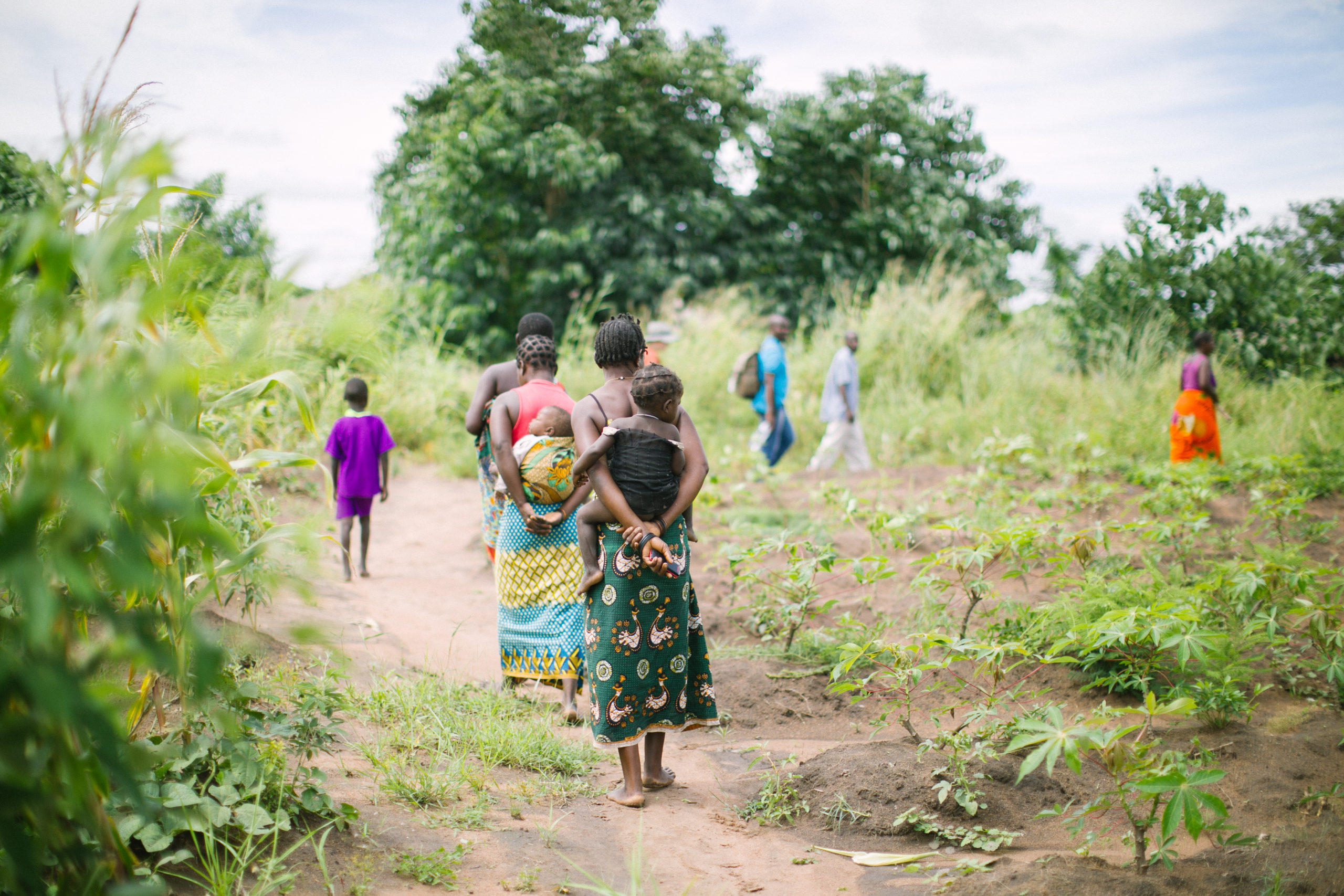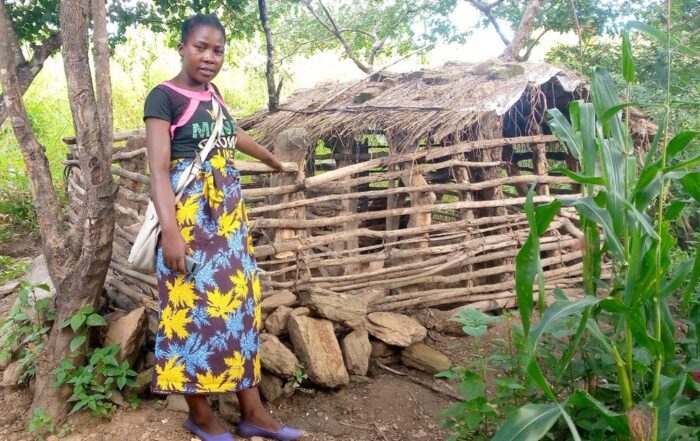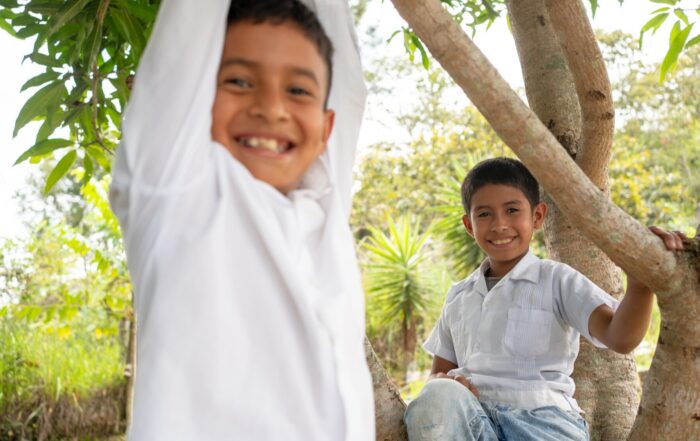Helping Vulnerable Women and Girls Thrive
During times of social upheaval, including the current pandemic, women and girls in many developing countries are even more economically vulnerable than usual. Some women, like Evelyn*, turn to transactional sex to survive.

REGION:
Sub-Saharan Africa
WORLD RENEW WORK:
Peace & Justice
According to a 2018 UNAIDS paper, women who engage in transactional sex are 50% more likely to have HIV. The social stigma of being “unmarriageable” and living with HIV further marginalizes women.
Evelyn sold things at the market on behalf of an employer but didn’t make enough to support herself, her 5-year-old daughter, and grandmother. To earn extra income, she engaged in transactional sex with market customers.
In contrast to prostitution, transactional sex is more about trading favors than selling sex. Many Sub-Saharan African cultures expect women to provide sex or domestic services when men supply them with food, clothing, and other basic resources. In some cultures, this disqualifies women as marriage partners and may leave them with HIV and unwanted pregnancies. According to a 2018 UNAIDS paper, women who engage in transactional sex are 50% more likely to have HIV. The social stigma of being “unmarriageable” and living with HIV further marginalizes women.
The authors of “Understanding Early Marriage and Transactional Sex in the Context of Armed Conflict” say it is not enough to give women health messages about the detriments of transactional sex. According to these researchers,
“Providing economic opportunities that reduce poverty and insecurity are likely to be more effective in reducing the number of young women who engage in transactional sex.”
Thankfully, World Renew – working with local partners – provides women and girls with real alternatives to transactional sex. Many young women have the opportunity to gather in groups called Girls Clubs, which allow them to discuss relevant issues and learn about their true value in the eyes of Jesus Christ. Armed with accurate sexual health information, these women are less vulnerable to HIV transmission. They grow personally through peer mentoring and instruction about emotional and mental well-being.
The women and girls who participate in these programs also learn work skills, or how to produce handcrafts, or may receive micro-finance loans to start businesses so they can support themselves and their families. The clubs help girls avoid or break the cycle of transactional sex, return to school, and earn sustainable livelihoods through new options such as tailoring, nursing, engineering, making food products, hairdressing, and other business ventures. Most get tested for HIV. Those who need treatment for HIV are supported emotionally and equipped to take their antiretroviral drugs properly.
Through one of these incredible Girls Clubs, Evelyn learned sewing skills and got a job as a seamstress. One day soon, she hopes to buy her own sewing machine.
“My life has completely changed! I use the money to pay for the school fees for my child. I can fully support my family.”
You can give a gift today to provide women and girls with another option!
*For Evelyn’s protection, World Renew is not using her real name in this story.
Share This Story
Evelyn sold things at the market on behalf of an employer but didn’t make enough to support herself, her 5-year-old daughter, and grandmother. To earn extra income, she engaged in transactional sex with market customers.
In contrast to prostitution, transactional sex is more about trading favors than selling sex. Many Sub-Saharan African cultures expect women to provide sex or domestic services when men supply them with food, clothing, and other basic resources.
In some cultures, this disqualifies women as marriage partners and may leave them with HIV and unwanted pregnancies. According to a 2018 UNAIDS paper, women who engage in transactional sex are 50% more likely to have HIV. The social stigma of being “unmarriageable” and living with HIV further marginalizes women.
The authors of “Understanding Early Marriage and Transactional Sex in the Context of Armed Conflict” say it is not enough to give women health messages about the detriments of transactional sex. According to these researchers,
“Providing economic opportunities that reduce poverty and insecurity are likely to be more effective in reducing the number of young women who engage in transactional sex.”
Thankfully, World Renew – working with local partners – provides women and girls with real alternatives to transactional sex. Many young women have the opportunity to gather in groups called Girls Clubs, which allow them to discuss relevant issues and learn about their true value in the eyes of Jesus Christ.
Armed with accurate sexual health information, these women are less vulnerable to HIV transmission. They grow personally through peer mentoring and instruction about emotional and mental well-being.
The women and girls who participate in these programs also learn work skills, or how to produce handcrafts, or may receive micro-finance loans to start businesses so they can support themselves and their families.
The clubs help girls avoid or break the cycle of transactional sex, return to school, and earn sustainable livelihoods through new options such as tailoring, nursing, engineering, making food products, hairdressing, and other business ventures. Most get tested for HIV. Those who need treatment for HIV are supported emotionally and equipped to take their antiretroviral drugs properly.
Through one of these incredible Girls Clubs, Evelyn learned sewing skills and got a job as a seamstress. One day soon, she hopes to buy her own sewing machine.
“My life has completely changed! I use the money to pay for the school fees for my child. I can fully support my family.”
You can give a gift today to provide women and girls with another option!
*For Evelyn’s protection, World Renew is not using her real name in this story.




